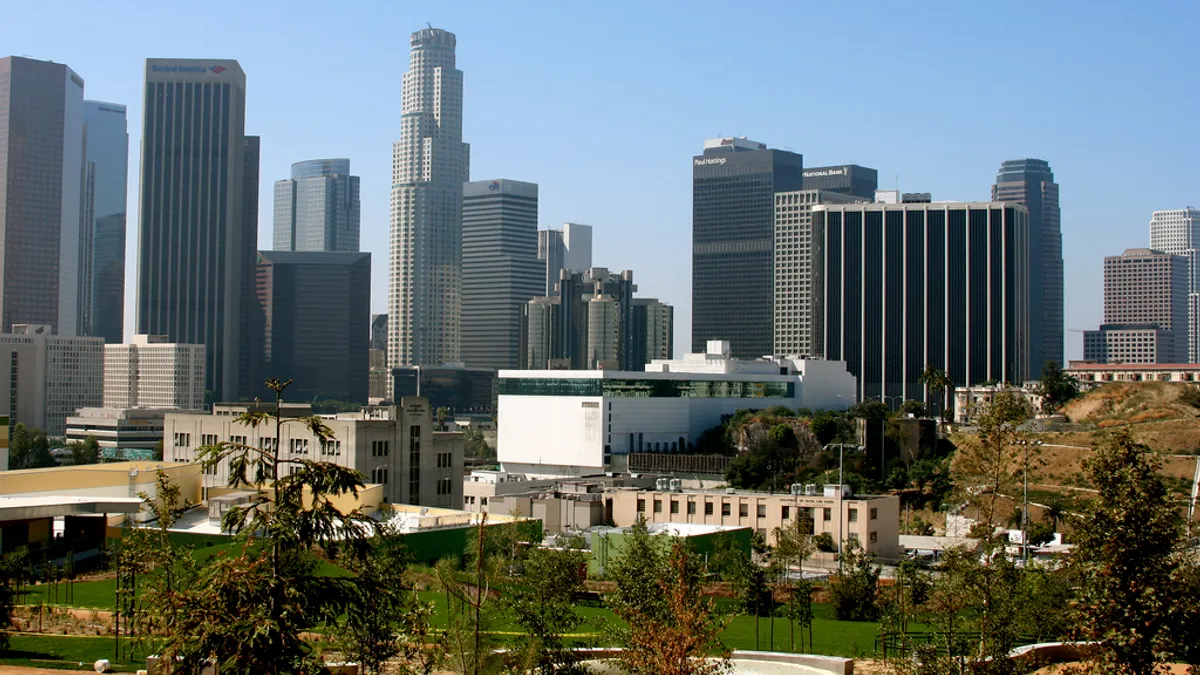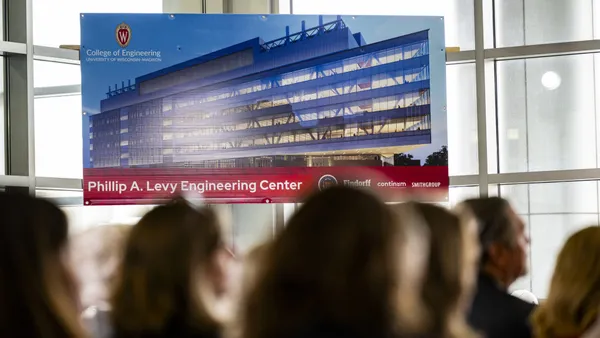Dive Brief:
- Developers of a Bjarke Ingels Group (BIG)-designed high-density megadevelopment in Los Angeles are trying to beat a potential voter denial by fast-tracking city and county approval in advance of a March ballot measure, according to The Los Angeles Times.
- The 670 Mesquit project would feature two connected 30-story buildings, retail space, restaurants, two small hotels, 250 for-rent residential units and 800,000 square feet of office space, all on the current site of L.A. Arts District warehouses.
- Developers will now begin the arduous task of negotiating for variances from the city’s density limits. In addition, if the proposed elevated deck stretching over train tracks to the Los Angeles River is something project officials want to pursue, they will have to gain approval from Amtrak as well as county and city transportation authorities.
Dive Insight:
Even if developers manage to beat the clock on the March vote, city officials could still deny the variance so as not to appear as if they are catering to big developers, which is a complaint among community activists. Some opponents have jumped on any proposals of high-end or luxury development that could lead to gentrification or might displace existing residents.
Another proposed Arts District development is under similar pressure to gain approval before the Neighborhood Integrity Initiative gets its chance at the ballot box. If the measure is approved, a two-year ban on density variances would go into effect. Developer SunCal is seeking a variance for its proposed 14.5-acre 6 AM project, which would include a 58-story tower with 1,700 residential units, retail, office, hotels, a school, 23,000 square feet of "art opportunity space" and parks. Similar to the 607 Mesquit development, the 6 AM project would also occupy a site that now contains warehouses.
Developers may take heart that Los Angeles recently approved a $1.2 billion high-density development in the South Central neighborhood. The Reef is a 35-story mixed-use luxury project — located near mass transit — that will feature multiple towers containing for-rent and for sale residential units, a grocery store, hotel, restaurants and fitness center. In an effort to ease concerns around gentrification and displacement, developers have pledged to make 5% of the apartments low-income and contribute $3 million to various community initiatives.














